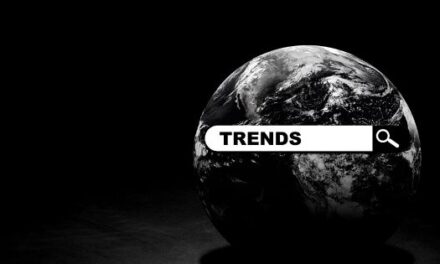I used to think I was an amazing collaborator until 2015, when my bubble was busted (and my ego).
You see I have been collaborating since I was a kid – I thought I was fantastic at working with others to produce something of mutual benefit. After all that’s what collaboration is all about. Right?

I continued to collaborate through my career – sometimes otherwise known as partnerships or team projects and with some amazing results. But something wasn’t quite right. That’s when I had to face the truth that I needed to work on my collaboration skills.
Projects were always delivered with incredible return on investment for everyone involved. But I was always so god damn stuffed by the end of each collaboration, yet couldn’t understand why…
It’s because I wasn’t collaborating effectively.
I was doing it by myself with others just coming along for the ride (some tagging along for a free ride, and others, wanting to buy a ticket to get on board but not knowing how to get me, the driver, to open the door fully and let them in and therefore leaving them with one foot hanging out the door).
So in 2015, I sat through my performance review where I was marked down on collaboration. I was furious. Me, Queen collaborator told that I needed to work on being a better collaborator. What the f*@k!!
I went to seek counsel from my General Manager at the time. He said with a wry smile, “You see Giovanna, your issue is this. You fly so high, you have incredible ideas and never fail to deliver but unfortunately, others can’t fly fast enough to keep up.”
I pondered on this for a while, as my first reaction was to say, “Well I just get shit done.” And that is ok if you are a sole operator, but when you are in a team environment or in your own business and you need to rely on others to help you amplify your message or idea, you need to fly your flock together.
Fast forward two years, I have worked on my collaboration skills and whilst I am not claiming to be the best collaborator in the world, I have learnt a thing or two about what it takes to be truly collaborative. I have also sought out the advice of my wonderful global group Sparrows United to share their smarts on what makes a good collaboration.
TRUST
Trust in others is one thing, but trust in oneself is key here. I realised the minute I trusted my ability and what I had to offer to the collaboration as opposed to always feeling like I had to prove myself, it helped me trust in others. It also helped them realise what their strengths were so that we could collectively realised what we brought to the table.
In addition to this, learning to trust yourself and your instinct t is important. You have to feel comfortable with the people you are working with, as you will be spending a lot of time with them. If you aren’t sure about a person, rather than writing them off, take the time to get to know them and what makes them tick, and vice versa so that you can find the common ground for you to connect (this is particularly so when thrown together in a project environment where you don’t necessarily get to choose who you collaborate with). If you are an individual collaborating with another individual you have the power of choice. I still recommend if your instinct is telling you something is not right, spend the time, to get to know them (date them so to speak) and if it doesn’t feel right, it’s never going to be right).
VALUE
Once you have established trust, the next step is to be clear in terms of the value you bring to the collaboration and vice versa. Whether it is a team project or two businesses or individuals coming together, outlining from the outset what the value exchange is, enables you to effectively divide and conquer.
I’ve had some collaboration where the value exchange has been effective and others where we haven’t clearly defined it upfront and as a result; I have not enjoyed the collaboration as I have felt that the value exchange wasn’t equitable.
DEFINE THE GOALS
Following on from my point above and in particular in reference to the collaborations where the value exchange hasn’t been fair, leads me to the importance of defining the goals.
Being clear upfront in terms of what the objectives of the collaboration are (i.e. what you want to get out it), how they will be measured, who is responsible and by when, provides a strong foundation and keeps all involved accountable.
As simple as these sounds, it is often overlooked in the excitement of the opportunity to work together or time pressures resulting in poor planning. Ensuring everyone is aligned and clear will prevent vague objectives – which just won’t cut it and will end in disaster – tarnishing reputations and working relationships.
MUTUAL RESPECT
There is naturally going to be one person that will be a stronger personality than the other (s) and that you may also have differing points of view. However, if you’ve entered into a collaboration environment, than every person involved has a voice and deserves to be heard. Confrontation can be hard and many people avoid it at all costs, but if feedback is delivered in a clear and timely manner outlining the issue and how it is affecting the collaboration (i.e. don’t let it brew as it will sit like a monkey on your back and become bigger than what it needs to be), most often it can be resolved. Trust me, I am not perfect, and at times, I have failed but was so grateful when my collaborator called me out on it (despite the circumstances around it, I had let her down), we talked it through, resolved how we could work better together and moved on. Remember, this is not personal, so don’t make it so.
REFLECT
After each collaboration I spend time reflecting on what worked, what didn’t, and what I would have done differently so that I continue to evolve, and hone my skill of collaboration.
Being self-aware goes a long way at this point (and if you need to work on this and your emotional intelligence, I suggest you do that), as it will prevent you from repeating mistakes made in previous collaborations as well as identify what new skills you have gained and what added value you will bring to your next collaboration.
One thing I know for sure is this – collaboration is king and more heads are better than one!



















